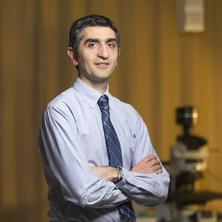Molecular definition of cellular states in the vascular endothelium (2023-2026)
Abstract
The endothelium is the main cell type forming blood vessels and spans across multiple cell states from stem/progenitor to a variety of terminally differentiated cells. How each of these cell states are defined at the molecular level is not known preventing the optimal formation and integration of blood vessels in bioengineered tissues. Using innovative single cell gene expression and chromatin accessibility studies combined with innovative analysis, we propose to define and validate each cell state at the molecular level. This new knowledge would greatly enhance our ability to control the transition between cell states leading to a more widespread use of endothelial cells in bioengineering of tissues globally for many applications.


